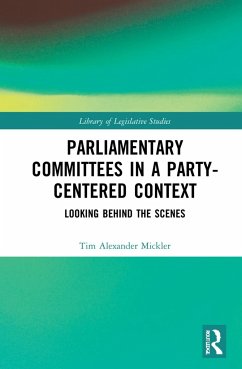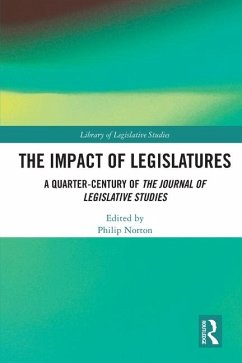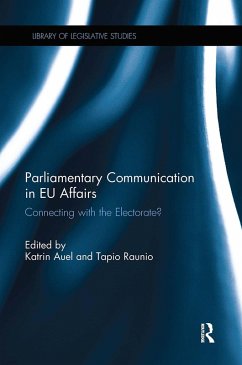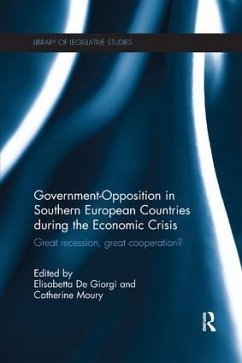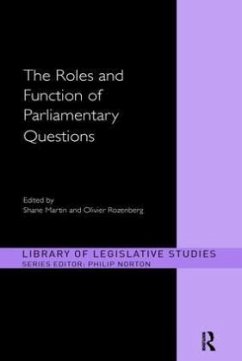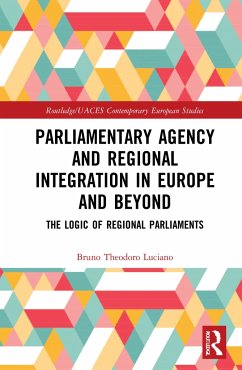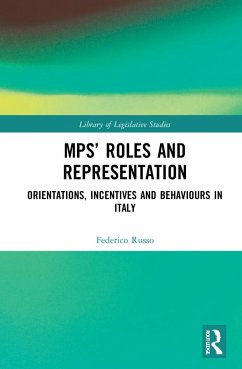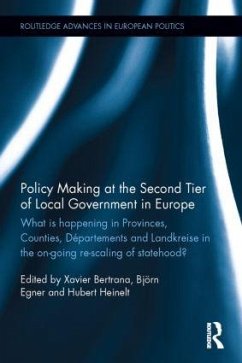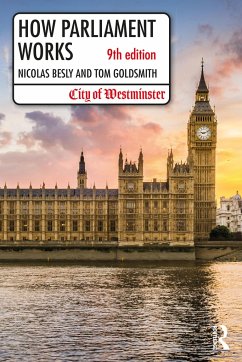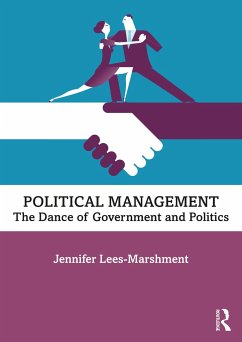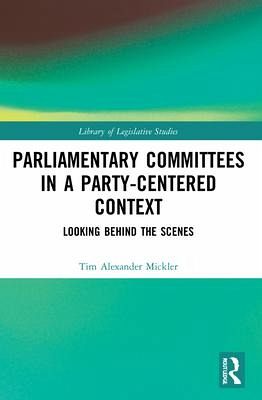
Parliamentary Committees in a Party-Centred Context
Looking Behind the Scenes
Versandkostenfrei!
Versandfertig in 6-10 Tagen
45,99 €
inkl. MwSt.
Weitere Ausgaben:

PAYBACK Punkte
23 °P sammeln!
This book examines the working procedures of parliamentary party groups within specialised committees - the backstage but primary means for MPs to influence policy.It explains which MPs specialise in particular policy areas, how they make policy choices in committees, and, subsequently, how these individual decisions are aggregated and 'unified' within and via parliamentary party groups. In doing so, the book expertly reveals the internal working procedures of parliaments and the role of individual MPs vis-á-vis the parliamentary party group leadership. Based on an analysis of more than 3,000...
This book examines the working procedures of parliamentary party groups within specialised committees - the backstage but primary means for MPs to influence policy.
It explains which MPs specialise in particular policy areas, how they make policy choices in committees, and, subsequently, how these individual decisions are aggregated and 'unified' within and via parliamentary party groups. In doing so, the book expertly reveals the internal working procedures of parliaments and the role of individual MPs vis-á-vis the parliamentary party group leadership. Based on an analysis of more than 3,000 committee assignments and over 100 in-depth interviews with MPs, it shows that individual experts in committees have a central role and decision-making power which is more varied and decentralised from the leadership than commonly assumed. It demonstrates that most policy decisions are prepared bottom-up rather than dictated top-down and that parliamentary party groups are not strictly hierarchical organisations dominated by elites.
This book will be of key interest to scholars and students of legislative and parliamentary studies, representative democracy, comparative politics, and journalists and practitioners within parliaments.
It explains which MPs specialise in particular policy areas, how they make policy choices in committees, and, subsequently, how these individual decisions are aggregated and 'unified' within and via parliamentary party groups. In doing so, the book expertly reveals the internal working procedures of parliaments and the role of individual MPs vis-á-vis the parliamentary party group leadership. Based on an analysis of more than 3,000 committee assignments and over 100 in-depth interviews with MPs, it shows that individual experts in committees have a central role and decision-making power which is more varied and decentralised from the leadership than commonly assumed. It demonstrates that most policy decisions are prepared bottom-up rather than dictated top-down and that parliamentary party groups are not strictly hierarchical organisations dominated by elites.
This book will be of key interest to scholars and students of legislative and parliamentary studies, representative democracy, comparative politics, and journalists and practitioners within parliaments.





